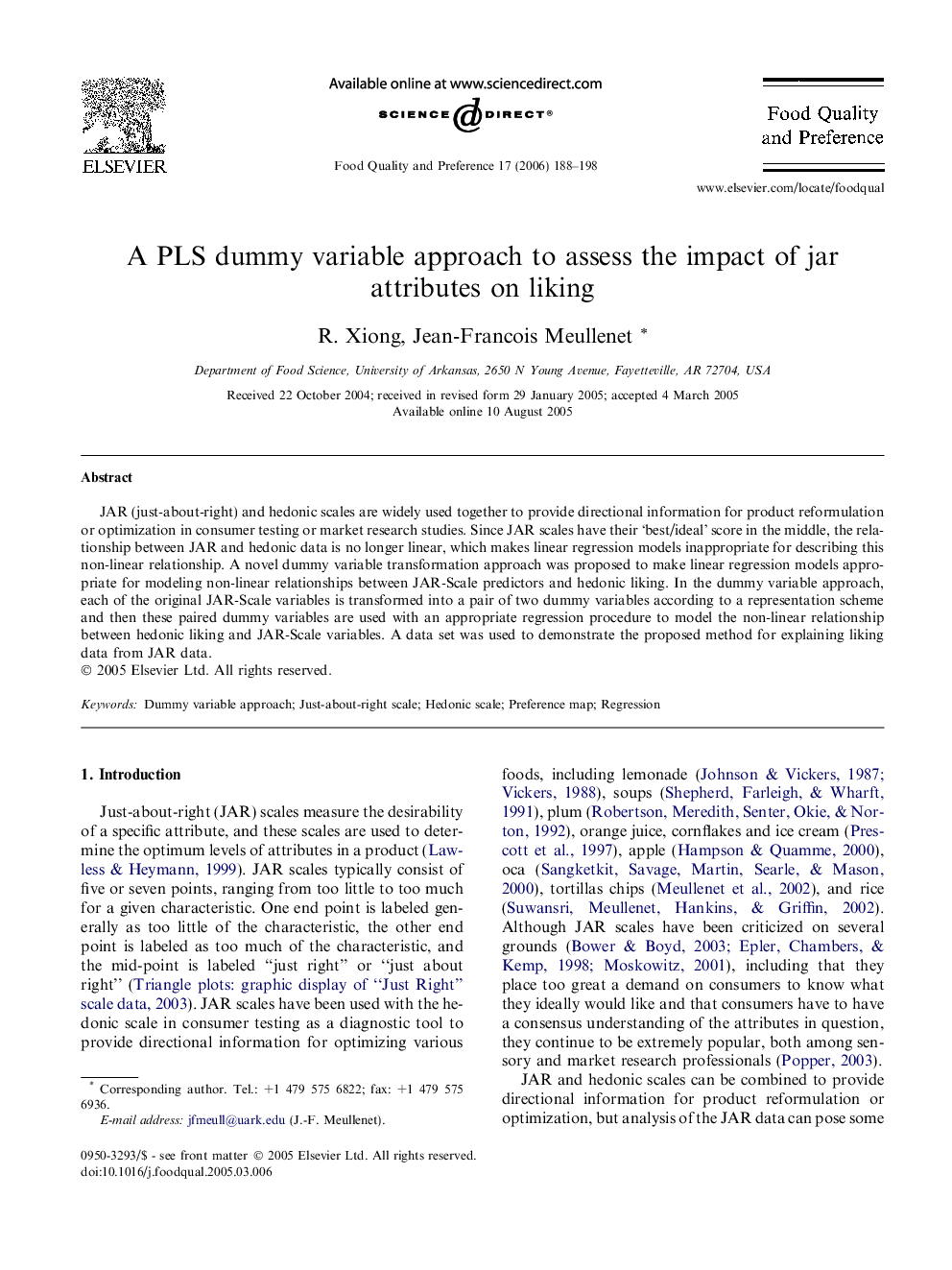| Article ID | Journal | Published Year | Pages | File Type |
|---|---|---|---|---|
| 4318282 | Food Quality and Preference | 2006 | 11 Pages |
JAR (just-about-right) and hedonic scales are widely used together to provide directional information for product reformulation or optimization in consumer testing or market research studies. Since JAR scales have their ‘best/ideal’ score in the middle, the relationship between JAR and hedonic data is no longer linear, which makes linear regression models inappropriate for describing this non-linear relationship. A novel dummy variable transformation approach was proposed to make linear regression models appropriate for modeling non-linear relationships between JAR-Scale predictors and hedonic liking. In the dummy variable approach, each of the original JAR-Scale variables is transformed into a pair of two dummy variables according to a representation scheme and then these paired dummy variables are used with an appropriate regression procedure to model the non-linear relationship between hedonic liking and JAR-Scale variables. A data set was used to demonstrate the proposed method for explaining liking data from JAR data.
